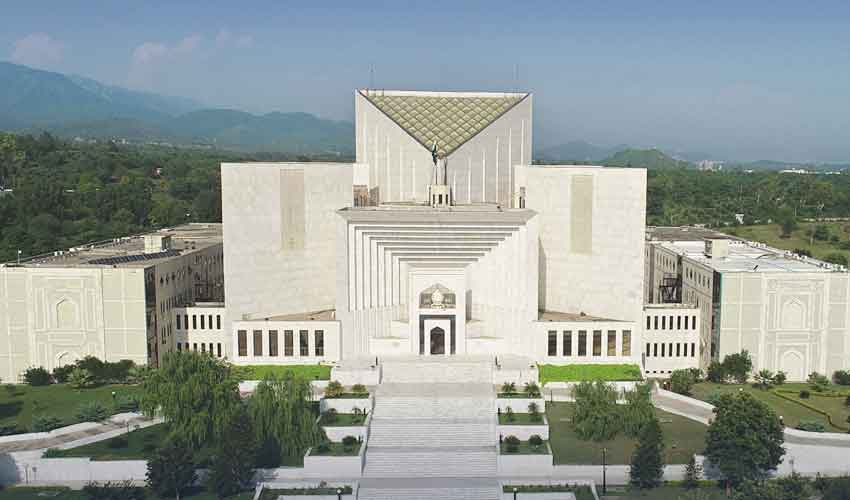ISLAMABAD: On Monday, the Supreme Court of Pakistan’s seven-judge bench began hearing several important cases. This bench, led by Justice Amin-ud-Din Khan, also includes Justices Ayesha Malik, Muhammad Ali Mazhar, Hassan Azhar Rizvi, Jamal Khan Mandokhail, Naeem Akhtar Afghan, and Musarrat Hilali.
During the session, the court rejected a petition that called for declaring candidates with more than 50% of the votes as the winners in elections. The petitioner, Advocate Chaudhry Akram, was fined Rs 20,000 for filing what the court called a “frivolous” petition.
Justice Mazhar asked the petitioner under which constitutional provision a candidate must secure over 50% of the vote to be declared successful. He pointed out that election results are determined by the votes that are cast. Justice Ayesha also questioned which constitutional rights of the petitioner had been violated. She reminded the petitioner that the Supreme Court does not have the power to create new laws.
The petitioner argued that Parliament plays a role in shaping the lives of the people. However, Justice Khan responded that it is not Parliament’s role to make such decisions. Justice Hilali added that while everyone has the right to vote, many people fail to vote, instead choosing to watch TV on election day. She said that when voters do not cast their ballots, it is their own fault.
Justice Mandokhail also asked the petitioner if they had voted in the February 2024 elections. When the petitioner admitted they had not voted, Justice Mandokhail commented that this disrespected the Constitution.
The court imposed a fine of Rs 20,000 for filing a frivolous case. Justice Khan dismissed the petitioner’s suggestion of imposing a Rs 100 billion penalty to reduce national debt, pointing out that the petitioner clearly could not afford such an amount.
The bench also heard another case involving a petition that asked whether independent candidates should be required to join political parties. The petitioner, who appeared via video link, acknowledged that this issue had already been resolved, so their appeal was dismissed.
The court also addressed a challenge to the Income Levy Tax Act of 2013. The Federal Board of Revenue (FBR) informed the court that many individuals involved in the case had not received notices, possibly due to incorrect addresses. The court directed that notices be published in newspapers to ensure that everyone is properly informed.
Looking ahead, the Supreme Court is scheduled to hear more cases. On November 20, the bench will hear petitions from the Pakistan Tehreek-e-Insaf (PTI) party, challenging parts of the Sindh Local Government Act 2013 and the Sindh Building Control Ordinance 1979. Another case will involve the Muttahida Qaumi Movement-Pakistan (MQM-P) leader Khalid Maqbool Siddiqui, who is challenging the results of the 2017 Population and Housing Census.
The bench will also address suo motu notices regarding the transfer of the Islamabad Inspector General of Police (IGP) for political reasons, and the issue of drug distribution in schools. A petition by Justice Farrukh Irfan Khan concerning seniority among judges in the Lahore High Court will also be heard.
On November 21, the court will take up a petition regarding child trafficking and abduction. Another case will challenge the constitutionality of a commission formed to investigate audio leaks. A suo motu notice on the poor condition of public schools in Khyber Pakhtunkhwa will also be discussed, along with a petition from Hamza Shahbaz challenging PTI’s Chaudhry Parvez Elahi.
The bench will also hear a case about the disqualification of Sindh Chief Minister Murad Ali Shah, filed by Syed Mehmood Akhtar Naqvi. Additionally, a petition to regulate the powers of high court chief justices will be addressed.
On November 22, the court will examine a petition about the declining state of forests in Pakistan. The bench will also consider a case related to the use of foreign aid after the 2005 earthquake. Further, petitions challenging appointments in the Sindh High Court and judiciary, as well as the implementation of right-to-information laws, will be heard.


